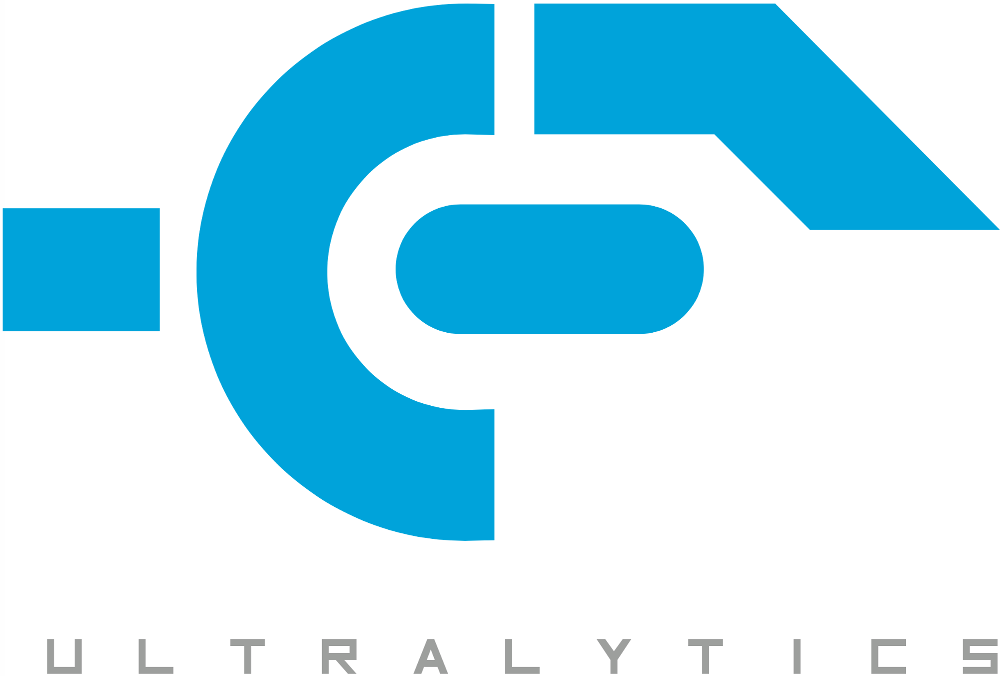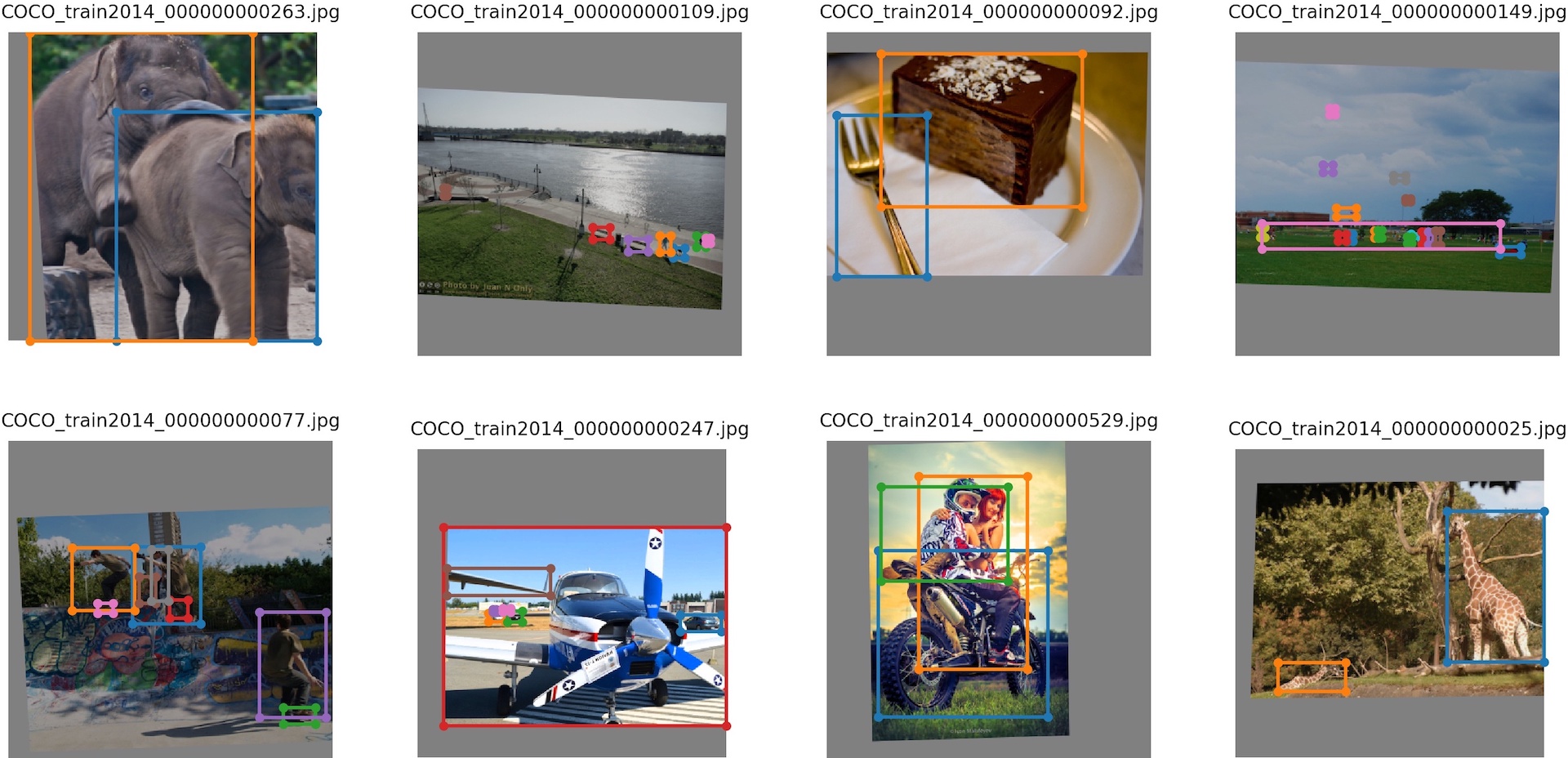I combined SLIMYOLO here.
You can use train.py to train sparsity with argument "--sparsity 0.0001", and use prune.py to pruning.

|



|

|
This directory contains PyTorch YOLOv3 software developed by Ultralytics LLC, and is freely available for redistribution under the GPL-3.0 license. For more information please visit https://www.ultralytics.com.
The https://github.com/ultralytics/yolov3 repo contains inference and training code for YOLOv3 in PyTorch. The code works on Linux, MacOS and Windows. Training is done on the COCO dataset by default: https://cocodataset.org/#home. Credit to Joseph Redmon for YOLO: https://pjreddie.com/darknet/yolo/.
Python 3.7 or later with the following pip3 install -U -r requirements.txt packages:
numpytorch >= 1.1.0opencv-pythontqdm
Our Jupyter notebook provides quick training, inference and testing examples.
Start Training: python3 train.py to begin training after downloading COCO data with data/get_coco_dataset.sh. Each epoch trains on 117,263 images from the train and validate COCO sets, and tests on 5000 images from the COCO validate set.
Resume Training: python3 train.py --resume to resume training from weights/last.pt.
Plot Training: from utils import utils; utils.plot_results() plots training results from coco_16img.data, coco_64img.data, 2 example datasets available in the data/ folder, which train and test on the first 16 and 64 images of the COCO2014-trainval dataset.

datasets.py applies random OpenCV-powered (https://opencv.org/) augmentation to the input images in accordance with the following specifications. Augmentation is applied only during training, not during inference. Bounding boxes are automatically tracked and updated with the images. 416 x 416 examples pictured below.
| Augmentation | Description |
|---|---|
| Translation | +/- 10% (vertical and horizontal) |
| Rotation | +/- 5 degrees |
| Shear | +/- 2 degrees (vertical and horizontal) |
| Scale | +/- 10% |
| Reflection | 50% probability (horizontal-only) |
| HSV Saturation | +/- 50% |
| HSV Intensity | +/- 50% |
https://cloud.google.com/deep-learning-vm/
Machine type: n1-standard-8 (8 vCPUs, 30 GB memory)
CPU platform: Intel Skylake
GPUs: K80 ($0.20/hr), T4 ($0.35/hr), V100 ($0.83/hr) CUDA with Nvidia Apex FP16/32
HDD: 100 GB SSD
Dataset: COCO train 2014 (117,263 images)
| GPUs | batch_size |
images/sec | epoch time | epoch cost |
|---|---|---|---|---|
| K80 | 64 (32x2) | 11 | 175 min | $0.58 |
| T4 | 64 (32x2) | 40 | 49 min | $0.29 |
| T4 x2 | 64 (64x1) | 61 | 32 min | $0.36 |
| V100 | 64 (32x2) | 115 | 17 min | $0.24 |
| V100 x2 | 64 (64x1) | 150 | 13 min | $0.36 |
| 2080Ti | 64 (32x2) | 69 | 28 min | - |
detect.py runs inference on all images and videos in the data/samples folder:
YOLOv3: python3 detect.py --cfg cfg/yolov3.cfg --weights weights/yolov3.weights

YOLOv3-tiny: python3 detect.py --cfg cfg/yolov3-tiny.cfg --weights weights/yolov3-tiny.weights

YOLOv3-SPP: python3 detect.py --cfg cfg/yolov3-spp.cfg --weights weights/yolov3-spp.weights

python3 detect.py --webcam shows a live webcam feed.
- Darknet
*.weightsformat: https://pjreddie.com/media/files/yolov3.weights - PyTorch
*.ptformat: https://drive.google.com/drive/folders/1uxgUBemJVw9wZsdpboYbzUN4bcRhsuAI
git clone https://github.com/ultralytics/yolov3 && cd yolov3
# convert darknet cfg/weights to pytorch model
python3 -c "from models import *; convert('cfg/yolov3-spp.cfg', 'weights/yolov3-spp.weights')"
Success: converted 'weights/yolov3-spp.weights' to 'converted.pt'
# convert cfg/pytorch model to darknet weights
python3 -c "from models import *; convert('cfg/yolov3-spp.cfg', 'weights/yolov3-spp.pt')"
Success: converted 'weights/yolov3-spp.pt' to 'converted.weights'test.py --weights weights/yolov3.weightstests official YOLOv3 weights.test.py --weights weights/last.pttests most recent checkpoint.test.py --weights weights/best.pttests best checkpoint.- Compare to darknet published results https://arxiv.org/abs/1804.02767.
ultralytics/yolov3 [email protected] (darknet-reported [email protected])
| 320 | 416 | 608 | |
|---|---|---|---|
YOLOv3 |
51.8 (51.5) | 55.4 (55.3) | 58.2 (57.9) |
YOLOv3-SPP |
52.4 | 56.5 | 60.7 (60.6) |
YOLOv3-tiny |
29.0 | 32.9 (33.1) | 35.5 |
# install pycocotools
git clone https://github.com/cocodataset/cocoapi && cd cocoapi/PythonAPI && make && cd ../.. && cp -r cocoapi/PythonAPI/pycocotools yolov3
cd yolov3
python3 test.py --save-json --img-size 608
Namespace(batch_size=16, cfg='cfg/yolov3-spp.cfg', conf_thres=0.001, data='data/coco.data', img_size=608, iou_thres=0.5, nms_thres=0.5, save_json=True, weights='weights/yolov3-spp.weights')
Using CUDA device0 _CudaDeviceProperties(name='Tesla T4', total_memory=15079MB)
Class Images Targets P R mAP F1: 100% 313/313 [07:40<00:00, 2.34s/it]
all 5e+03 3.58e+04 0.117 0.788 0.595 0.199
Average Precision (AP) @[ IoU=0.50:0.95 | area= all | maxDets=100 ] = 0.367 <---
Average Precision (AP) @[ IoU=0.50 | area= all | maxDets=100 ] = 0.607 <---
Average Precision (AP) @[ IoU=0.75 | area= all | maxDets=100 ] = 0.387
Average Precision (AP) @[ IoU=0.50:0.95 | area= small | maxDets=100 ] = 0.208
Average Precision (AP) @[ IoU=0.50:0.95 | area=medium | maxDets=100 ] = 0.392
Average Precision (AP) @[ IoU=0.50:0.95 | area= large | maxDets=100 ] = 0.487
Average Recall (AR) @[ IoU=0.50:0.95 | area= all | maxDets= 1 ] = 0.297
Average Recall (AR) @[ IoU=0.50:0.95 | area= all | maxDets= 10 ] = 0.465
Average Recall (AR) @[ IoU=0.50:0.95 | area= all | maxDets=100 ] = 0.495
Average Recall (AR) @[ IoU=0.50:0.95 | area= small | maxDets=100 ] = 0.332
Average Recall (AR) @[ IoU=0.50:0.95 | area=medium | maxDets=100 ] = 0.518
Average Recall (AR) @[ IoU=0.50:0.95 | area= large | maxDets=100 ] = 0.621
python3 test.py --save-json --img-size 416
Namespace(batch_size=16, cfg='cfg/yolov3-spp.cfg', conf_thres=0.001, data='data/coco.data', img_size=416, iou_thres=0.5, nms_thres=0.5, save_json=True, weights='weights/yolov3-spp.weights')
Using CUDA device0 _CudaDeviceProperties(name='Tesla T4', total_memory=15079MB)
Class Images Targets P R mAP F1: 100% 313/313 [07:01<00:00, 1.41s/it]
all 5e+03 3.58e+04 0.105 0.746 0.554 0.18
Average Precision (AP) @[ IoU=0.50:0.95 | area= all | maxDets=100 ] = 0.336 <---
Average Precision (AP) @[ IoU=0.50 | area= all | maxDets=100 ] = 0.565 <---
Average Precision (AP) @[ IoU=0.75 | area= all | maxDets=100 ] = 0.350
Average Precision (AP) @[ IoU=0.50:0.95 | area= small | maxDets=100 ] = 0.151
Average Precision (AP) @[ IoU=0.50:0.95 | area=medium | maxDets=100 ] = 0.361
Average Precision (AP) @[ IoU=0.50:0.95 | area= large | maxDets=100 ] = 0.494
Average Recall (AR) @[ IoU=0.50:0.95 | area= all | maxDets= 1 ] = 0.281
Average Recall (AR) @[ IoU=0.50:0.95 | area= all | maxDets= 10 ] = 0.433
Average Recall (AR) @[ IoU=0.50:0.95 | area= all | maxDets=100 ] = 0.459
Average Recall (AR) @[ IoU=0.50:0.95 | area= small | maxDets=100 ] = 0.256
Average Recall (AR) @[ IoU=0.50:0.95 | area=medium | maxDets=100 ] = 0.495
Average Recall (AR) @[ IoU=0.50:0.95 | area= large | maxDets=100 ] = 0.622Issues should be raised directly in the repository. For additional questions or comments please email Glenn Jocher at [email protected] or visit us at https://contact.ultralytics.com.
